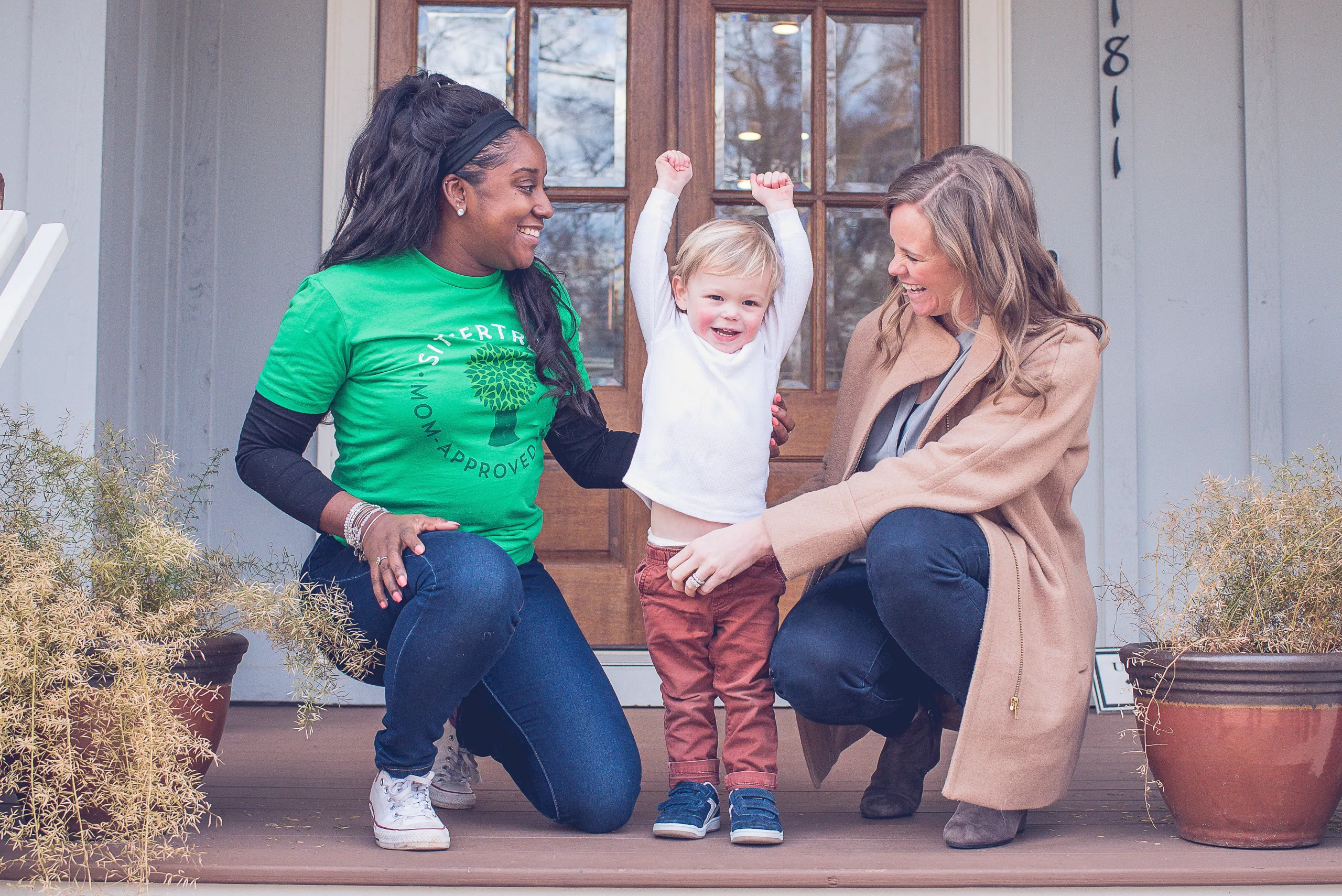Mindfulness may seem like a buzzword, but this centuries-old practice can bring joy to your parenting journey.
Practicing mindfulness has scientifically proven benefits to enhance our relationships—with others, with ourselves, and with the world around us.
UC Berkeley author Jeremy Adam Smith writes, ‘Mindfulness is linked to better relationships with our kids. Studies have found that mindfulness practices can lessen stress, depression, and anxiety in parents of preschoolers and children with disabilities. Mindful parenting is also linked to more positive behavior in kids.

So, what does ‘mindfulness’ mean in practice, and how can you get started parenting mindfully?
As professor, scientist and zen student Jon Kabat-Zinn defines it, mindfulness is ‘the awareness that arises through paying attention on purpose, in the present moment, and non-judgmentally.’ It’s about noticing the moment we’re in, so we can then appreciate that moment.
As adults in our modern society, we’re increasingly focused on reaching goals and milestones—often missing the messy, magical moments right in front of us…happening here and now.
The old parenting adage ‘the days are long, but the years are short’ may be true, but when we practice mindfulness, we can slow time down just a tad.
Practicing mindfulness as parents can help us recapture the magic of our youth, while connecting with our children in soothing, soul-satisfying ways.
Here are a few easy tips to get started on your mindful parenting journey.
1. Reduce reactivity
We’re parents, but we’re also people. It’s biologically normal for your body to elicit a stress response in frustrating situations. When you’re already running late, are rushing to get out the door, and your kid is on the floor refusing to be clothed, acknowledge that it is a stressful situation. Accept what you’re feeling is not only OK, but normal. Don’t be so hard on yourself!
Once you’ve accepted your own emotions, you can try to de-escalate. When you feel your body’s stress cues (heart racing, jaw clenching), try to model how you’d like your kids to behave when they’re stressed.
You can try saying ‘I need a minute to calm down because I’m feeling stressed’, or ‘I’m going to step into the other room and take some deep breaths.’ After you take a minute, you can try explaining to your child why you were feeling frustrated or stressed.
Of course, a little meditation never hurts, either.
As Hunter Clarke-Fields says in her book ‘Raising Good Humans’, the best thing you can do is lay a foundation of mindfulness with a quick, 5-minute meditation practice each day. If you can’t find the time, try meditating during a daily activity.
2. Slow down
Welcome to a day in your life: errands need running, chores need completing, you’ve got to catch up on bills and, heck, maybe even vacation planning. But you also have a child vying for your attention.
What would happen if you put all those ‘must do’ items on hold, just for a few minutes?
As cliche as it may sound, all we really ever have is right now. When we’re wrapped up in what’s to come, it’s easy to forget that the current moment is one we used to pray for and dream about.
Try putting your responsibilities on pause. Slow things down for a second. Spend five minutes experiencing the ‘mundane’ with your child. You can try employing all of your senses, and watch as the ordinary turns into extraordinary.
What do you see? Can you notice the details of a dragonfly’s iridescent wings? What do you smell? Is someone frying bacon next door? Continue with this exercise for your other senses—noticing what you can taste, hear and touch.
Noticing and naming your sensory experience helps you connect with the present moment, with your child…and even with your own inner child.
3. Share your calm
It can be tricky and overwhelming when our toddlers are having a meltdown to a) know how to respond and b) not melt down ourselves.
The next time your toddler is having a tantrum, try these tips from an LMFT at Big Little Feelings.
- Crouch down. Getting on their level and seeing them eye-to-eye increases feelings of safety and security, helping them to calm down faster.
- Show and communicate empathy. Let them know you’re there for them and that big feelings are OK. If you can’t think of what to say, showing empathy on your face is often enough to let them know they’re not alone.
4. Recharge
Remember that first step to mindful parenting—the one about acknowledging yourself as a human being with basic needs?
An effective way to honor your own needs is taking time to reset.
Having a quality child care team at your fingertips goes a long way in getting your family the support they need.
Then, you can return to your kids refreshed, energized, and ready to parent with intention.
To help you on your mindful parenting journey, we’re offering your first sitter booking for free.*
Use Code TREEHOUSE1FREE.

As you can see, mindfulness isn’t just for monks, CEOs or professional athletes. It’s also for moms, caregivers, and even kids.
We’d love to hear how we can support you on your parenting journey. Leave a comment below and tell us what mindfulness practice you’re trying out.
*Terms apply. Valid for one free booking. New users only. No booking fees. Sitter wages not included in promotion.
Have questions?
Check out our Frequently Asked Questions or set up a call with one of our friendly support team members (who, by the way, all started as sitters!)


